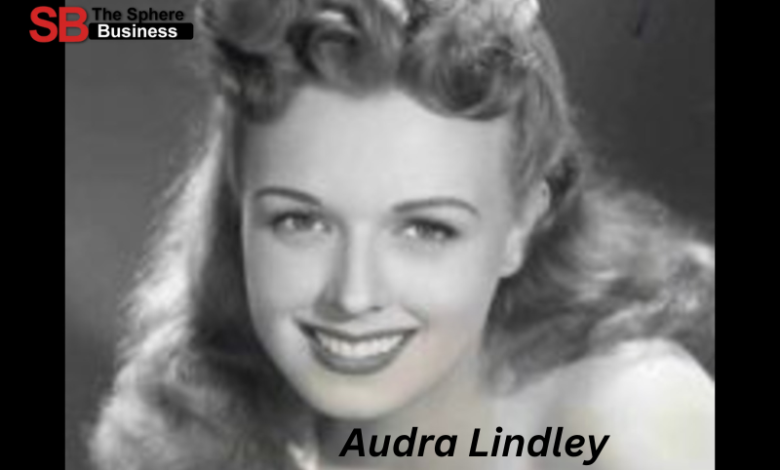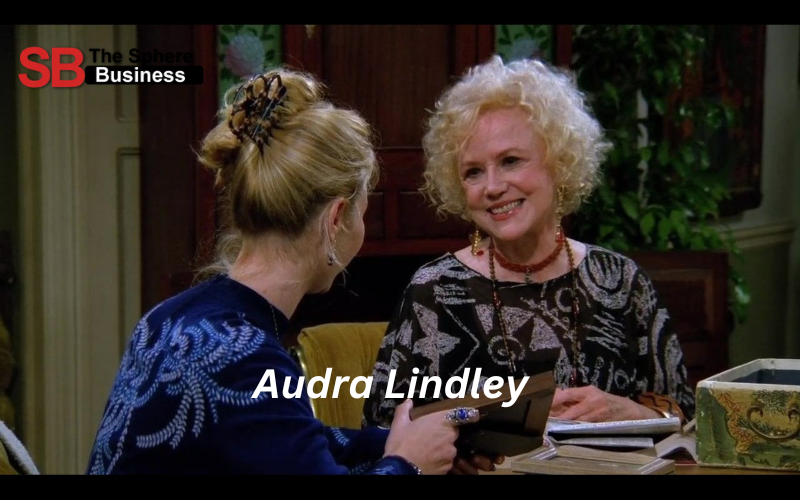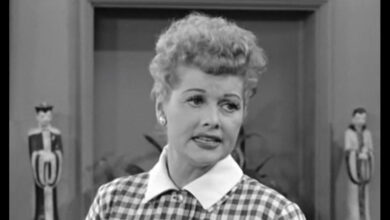Audra Lindley: A Legendary Actress of Television and Stage

Audra Lindley was an American actress known for her remarkable performances in television, film, and theater. Her most iconic role as Helen Roper on the popular sitcom Three’s Company made her a beloved figure in American households. Throughout her career, she demonstrated versatility, humor, and a passion for acting that resonated with audiences across generations. This article explores the life and legacy of Audra Lindley, from her early beginnings to her enduring impact on television history.
Early Life and Background
Audra Marie Lindley was born on September 24, 1918, in Los Angeles, California. She grew up in a family immersed in the entertainment industry. Her father, Bert Lindley, was a film actor, which provided Audra with early exposure to the world of acting. Inspired by her father’s career, Audra developed a love for performing arts from a young age.
Her career path, however, was not immediately linear. After high school, Lindley began working in various jobs, including as a stand-in and bit player in the early years of Hollywood cinema. Determined to make her mark, Lindley worked diligently to improve her craft, eventually transitioning to more prominent roles in television and theater.
Audra Lindley’s Rise to Fame
Audra Lindley’s early career was rooted in theater, where she worked in repertory and stock companies, building her skills as a dramatic actress. One of her first major breaks came in the 1940s when she joined the prestigious Broadway scene. Her performances were highly regarded, but Lindley had yet to achieve widespread fame.
Her television career began in the 1950s when the medium was still in its infancy. Lindley appeared in various anthology series, including The United States Steel Hour and Studio One in Hollywood. As she gained more experience, she transitioned from guest-starring roles to more substantial parts in television dramas.
The Iconic Role of Helen Roper
The role that ultimately defined Audra Lindley’s career came in 1977 when she was cast as Helen Roper on the ABC sitcom Three’s Company. Her portrayal of Mrs. Roper, a sassy, witty, and often exasperated housewife, won the hearts of viewers across the nation. She starred alongside Norman Fell, who played her on-screen husband, Stanley Roper, and the chemistry between the two actors became one of the most beloved elements of the show.
Helen Roper’s character was a significant departure from typical sitcom wives of the era. Audra Lindley imbued Helen with a sense of independence, humor, and vulnerability, which made her both relatable and endearing to the audience. Her comedic timing and ability to balance humor with genuine emotion were key factors in the success of her portrayal.
After the popularity of Three’s Company, Lindley and Fell were given their own spin-off series, The Ropers, which ran from 1979 to 1980. Although the show did not achieve the same level of success as its predecessor, it solidified Lindley’s reputation as a talented comedic actress.
Audra Lindley’s Success Beyond Television
While Lindley is best known for her work in sitcoms, her career extended far beyond the realm of television comedy. She continued to work in theater throughout her life, balancing roles in both comedic and dramatic productions. In the 1980s and 1990s, she took on more dramatic roles, showing her range as an actress.
Lindley appeared in several notable films during her career, including The Reluctant Debutante (1958) and The Heartbreak Kid (1972). In these films, she demonstrated her ability to move seamlessly between comedy and drama, proving her versatility as a performer.
Her television career also continued to thrive. She made memorable guest appearances on popular series such as The Love Boat, Murder, She Wrote, and Friends. These roles allowed her to showcase her talents to new generations of viewers, ensuring that her legacy would endure long after her initial rise to fame.
Personal Life and Legacy
Audra Lindley was married twice, first to Dr. Hardy Ulm, with whom she had five children, and later to actor James Whitmore. Despite the challenges of balancing her personal life with her demanding career, Lindley remained devoted to her family and continued working well into her later years.
Her role as Helen Roper has left an indelible mark on popular culture. Three’s Company remains one of the most beloved sitcoms of the 1970s, and reruns of the show continue to attract new fans. Lindley’s portrayal of Helen Roper, with her bright dresses, bold jewelry, and sharp wit, has become iconic.
Audra Lindley passed away on October 16, 1997, from leukemia at the age of 79. Her death was mourned by fans, friends, and colleagues alike. She left behind a legacy as an actress who could make audiences laugh and cry, often within the same performance.
Audra Lindley’s Impact on Women in Television
Audra Lindley’s portrayal of Helen Roper also had a significant impact on the portrayal of women in television. In a time when many female characters were often relegated to supporting roles or portrayed as one-dimensional, Lindley brought depth to her character. Helen Roper was not simply a housewife; she was a woman with her own desires, frustrations, and humor.
Lindley’s performance challenged traditional stereotypes of women on television. She showed that female characters could be funny, complex, and fully developed individuals. Her influence can be seen in the evolution of female characters in sitcoms and television dramas in the decades that followed.

Conclusion
Audra Lindley’s career was marked by a dedication to her craft, a willingness to take on diverse roles, and a unique ability to connect with audiences. From her early days on Broadway to her iconic role as Helen Roper, Lindley left an indelible mark on the world of entertainment. She was a trailblazer for women in television and a versatile actress who brought humor, heart, and depth to every role she played. Though she is no longer with us, her legacy continues to live on through her memorable performances and the joy she brought to millions of viewers.





